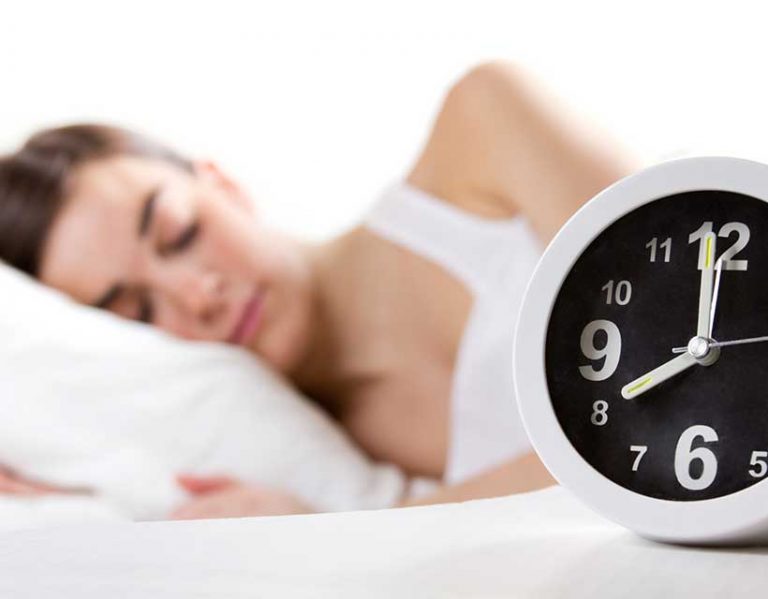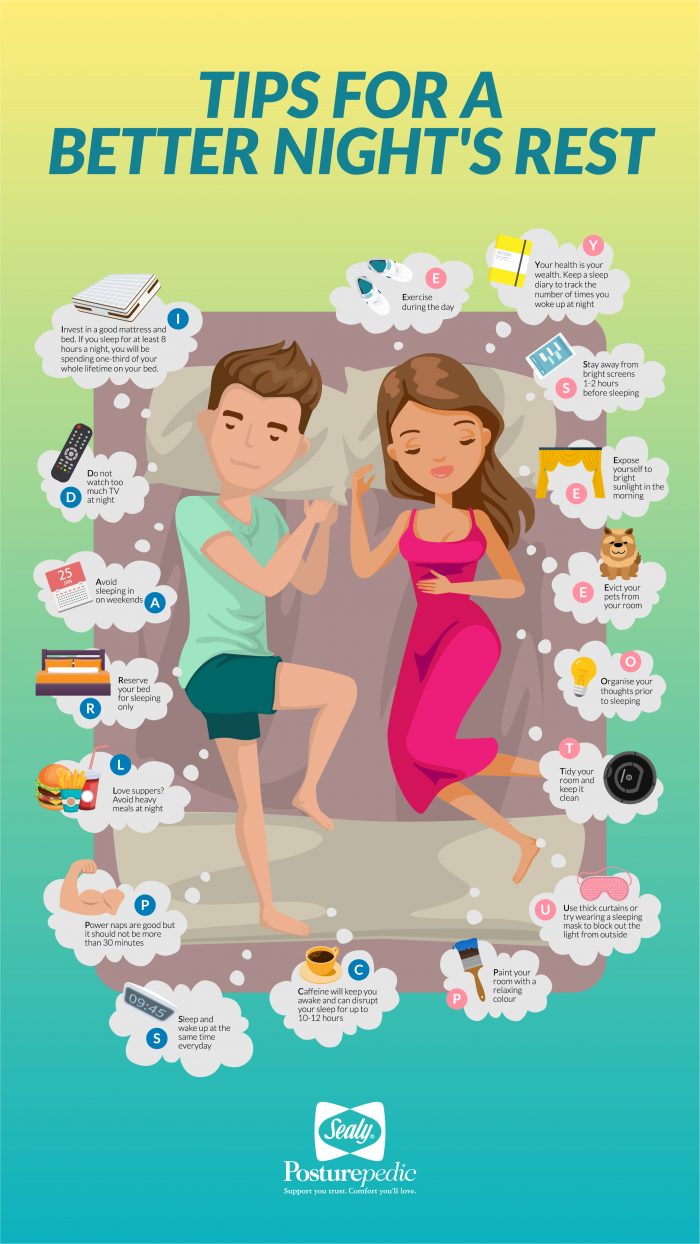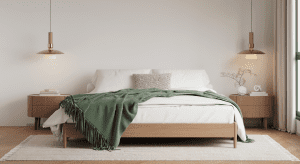

Sleep and wake up at the same time every day. This will make you feel more energetic and refreshed if you keep a regular sleep-wake schedule. If you are getting sufficient sleep, you should wake up naturally without an alarm clock.
Exercise during the day. When you exercise regularly, you will feel rejuvenated during the day and can sleep better at night. Doing something is better than doing nothing, so exercise daily, even if it’s just brisk walking.
Avoid sleeping in on weekends. Your sleep-wake schedule should be the same throughout the whole week. Changing your sleep schedule by an hour or two can worsen the jetlag-like symptoms that you will experience.
Love suppers? Avoid heavy meals at night as it may cause discomfort from indigestion. Try to eat earlier and reduce food intake within 2 hours of bed. If you are really hungry, try a night-time snack such as milk, yogurt, cereal or even a banana.
Your health is your wealth. Keep a sleep diary to track the number of times you woke up at night, how long you’ve slept and how you feel in the morning. If you are seeking consultation from a doctor, all these are useful information.
Power naps are good but it should not be more than 30 minutes. Limit it to 15 to 20 minutes in the early afternoon. Otherwise, you might have trouble falling asleep at night.
Organise your thoughts prior to sleeping. If you are worried about something such as exams or work, jot it down and look at it the following day after your sleep.
Stay away from bright screens 1-2hours before sleeping. The blue light from your phone, computer or TV is very disruptive as it activates your brain. Turn down the brightness or use light-reducing software to reduce the impact.
Tidy your room. Studies have shown that a clean bedroom equates to better sleep. This is supported by the National Sleep Foundation who found that people who make their bed are 19 per cent more likely to sleep well than people who don’t. So, don’t be lazy. Clear your rubbish and mop the floor to make your room more conducive for sleeping!
Use thick curtains or try wearing a sleeping mask to block out the light from outside. Light prevents the production of melatonin which is the hormone that helps to regulate sleep and wakefulness. If possible, cover up the electronics that emit light as well.
Reserve your bed for sleeping only. If you do not do work, watch TV or use your computer on your bed, your brain will register that and associate your bedroom with just sleep, making it easier for you to fall asleep.
Expose yourself to bright sunlight in the morning. This will definitely keep you awake, especially when you just wake up.
Paint your room with a relaxing colour. Select a colour scheme that makes you feel comfortable and soothing.
Evict your pets from your room! As much as you love them, they could easily interfere with your sleep. Hamsters and cats are nocturnal while dogs are usually fidgety. You don’t want to be disturbed the whole night.
Do not watch too much TV at night. Many TV programs are stimulating rather than relaxing. This makes it harder for you to sleep at night, so try listening to soothing music instead.
Invest in a good mattress and bed. If you sleep 8 hours a night, you will be spending one-third of your whole lifetime on your bed. Your mattress can last a long time, so get a comfortable one that gives you the right support at the same time.
Caffeine will keep you awake and can disrupt your sleep for up to 10 – 12 hours. So, reduce your coffee intake during the day!





